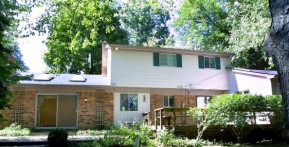That annoyingly friendly neighbor of yours can actually save you from heart attacks.
A new study conducted by psychologists at the University of Michigan found that those who had more social connections in their neighborhood had lower chances of suffering a heart attack.
The researchers analyzed more than 5,000 adults in rural, suburban and urban areas over a period of four years on social connectedness. Sixty two percent of the participants were married and two third of the respondents were women. The average age of the participants was 70 years.
These participants were analyzed for neighborhood social cohesion, which accounted for the friendliness of their neighborhood, how much they trusted their neighbors and how much they felt a part of their community.
The study found that those who reported higher levels of neighborhood social cohesion had lower chances of having heart attacks. Apparently, each unit of social cohesion was linked to a 17 percent reduction in the risk of heart attacks. There was a 67 percent difference between those who reported extremely high social cohesion and least social cohesion.
The researchers said that maintaining friendly neighborhood relations helps maintain heart health because "helpful emotional support" can keep the "toxic effects of stress," which is one of the major causes of a heart attack, at bay.
Also when people interact on a regular basis, neighbors are more likely to spot health issues, share health-related information and even lend money and resources to keep fit.
"Perceived neighborhood social cohesion could be a type of social support that is available in the neighborhood social environment outside the realm of family and friends. Further, this additional type of neighborhood-level social support may create and reinforce neighborhood norms. These norms may then impact the behavior of neighborhood residents by creating a system of incentives for adopting and maintaining certain behaviors," the researchers wrote in the study.
The study was published in the Journal of Epidemiology & Community Health.
Several studies have highlighted the importance of urban planning and lifestyle and its effect on health. A recent research pointed out how cities with more intersections were healthier and another showed how the number of abandoned buildings in an area could negatively impact social relationships and mutual trust in the community.
Another one also showed how living in a neighborhood with more foreclosed properties could lead to high blood pressure.













